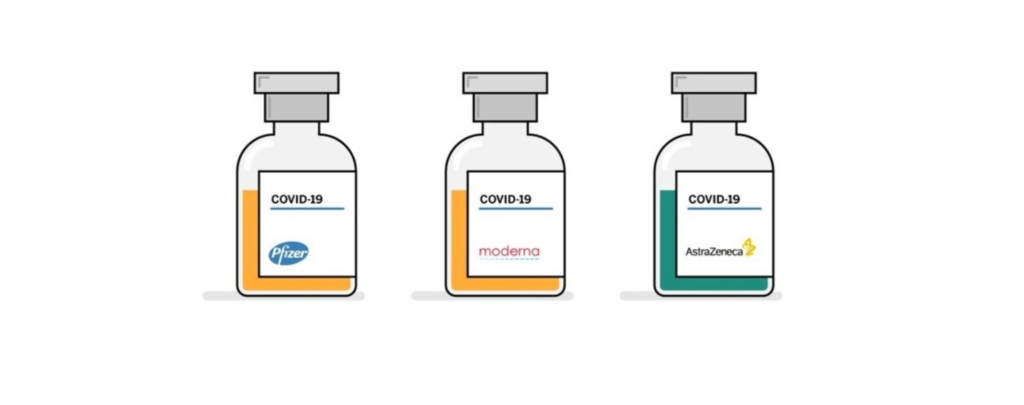If the Covid vaccine were video game characters, what would their stats be? Let’s take a look!
A lot of figures have been thrown around but all of them have been based on trial data and it is hard to compare like-for-like.
Pfizer/BioNTech says its vaccine is up to 95% effective after two doses. The Moderna vaccine is said to be nearly 95% effective while the Oxford-AstraZeneca one is between 62% – 90% effective. This 62% may sound lower, but no-one who received the Oxford vaccine during trials was hospitalized or became seriously ill with Covid-19. Basically, they all work, otherwise they would not have been approved.
The Pfizer and Moderna vaccines are RNA vaccines, made up of tiny fragments of the virus’ genetic code, surrounded by a bubble of fat. When the vaccine is introduced into a host, it starts to create the spike protein of the coronavirus. The body recognizes this is happening and makes anti-bodies and T-cells to fight the virus off. The next time the person then encounters the virus for real, they have already got everything they need.
The Oxford vaccine uses a different approach. Here a version of the common cold virus that used to infect chimpanzees, altered it so it does not infect people, and then added a bit of the genetic code of Covid-19. Once these blueprints are inside the body, they start producing the coronavirus’ spike protein. The immune system recognizes this and acts.
The Pfizer vaccine needs to be stored at -70°C, sent out in special boxes surrounded by dry ice to freezer farms, where it can be kept for up to six months. It can then be stored in a normal fridge for up to five days, before being administered to people.
The Moderna vaccine involves a similar process but only needs to be kept in a regular freezer, at around -20 °C.
The Oxford vaccine though only needs to be kept in a normal fridge, at around 3-8°C, which means it is easier and cheaper to move around than the other two.
The truth is when it comes to vaccines, they are not up against each other. They are all going to play key roles when it comes to ending this pandemic.
